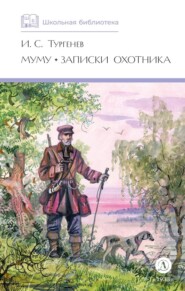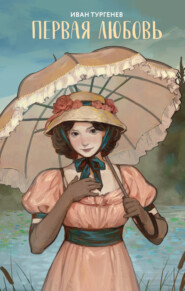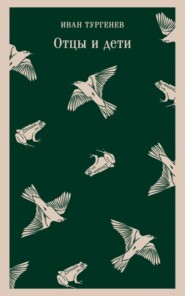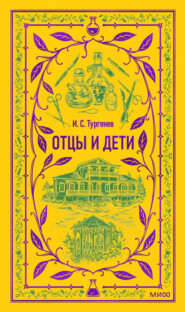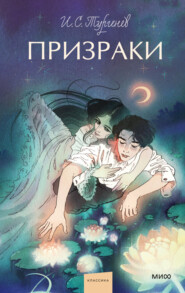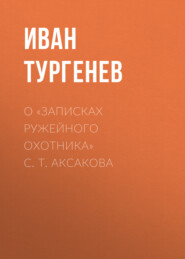По всем вопросам обращайтесь на: info@litportal.ru
(©) 2003-2024.
✖
The Diary of a Superfluous Man, and Other Stories
Настройки чтения
Размер шрифта
Высота строк
Поля
"What think you," she went on; – "will he write to me again?"
"I think not, Lizavéta Kiríllovna!"
She remained silent for a while.
"And, in fact, what is there for him to write about? He told me everything in his first letter. I could not be his wife; but I was happy … not for long… I was happy…"
Bizmyónkoff lowered his eyes.
"Akh," – she went on with animation; – "if you only knew how loathsome that Tchulkatúrin is to me!.. It always seems to me that I can see … his blood … on that man's hands." (I writhed behind my crack.) "However," – she added thoughtfully; – "who knows, – perhaps had it not been for that duel … Akh, when I beheld him wounded, I immediately felt that I was all his."
"Tchulkatúrin loves you," – remarked Bizmyónkoff.
"What do I care for that? Do I need any one's love?.." She paused, and added slowly: … "except yours. Yes, my friend, your love is indispensable to me: without you I should have perished. You have helped me to endure terrible moments…"
She ceased… Bizmyónkoff began to stroke her hand with paternal tenderness. "There 's no help for it, there 's no help for it, Lizavéta Kiríllovna," – he repeated, several times in succession.
"Yes, and now," – she said dully, – "I think I should die if it were not for you. You alone sustain me; moreover, you remind me … For you know everything. Do you remember how handsome he was that day?.. But forgive me: it must be painful for you…"
"Speak, speak! What do you mean? God bless you!" – Bizmyónkoff interrupted her. She squeezed his hand.
"You are very kind, Bizmyónkoff," – she went on: – "you are as kind as an angel. What am I to do? I feel that I shall love him until I die. I have forgiven him, I am grateful to him. May God grant him happiness! May God give him a wife after his own heart!" – And her eyes filled with tears. – "If only he does not forget me, if only he will now and then recall his Liza to mind. Let us go out," – she added, after a brief pause.
Bizmyónkoff raised her hand to his lips.
"I know," – she began with warmth, – "every one is blaming me, every one is casting stones at me now. Let them! All the same, I would not exchange my unhappiness for their happiness … no! no!.. He did not love me long, but he did love me! He never deceived me: he did not tell me that I was to be his wife; I myself never thought of such a thing. Only poor papa hoped for that. And now I am still not utterly unhappy: there remains to me the memory, and however terrible the consequences may be … I am stifling here … it was here that I saw him for the last time… Let us go out into the air."
They rose. I barely managed to leap aside and hide behind a thick linden. They came out of the arbour and, so far as I was able to judge from the sound of their footsteps, went off into the grove. I do not know how long I had been standing there, without stirring from the spot, absorbed in a sort of irrational surprise, when suddenly the sound of footsteps became audible again. I started and peered cautiously from my ambush. Bizmyónkoff and Liza were returning by the same path. Both were greatly agitated, especially Bizmyónkoff. He had been weeping, apparently. Liza halted, gazed at him, and uttered the following words distinctly: "I consent, Bizmyónkoff. I would not have consented, had you merely wished to save me, to extricate me from a frightful position; but you love me, you know all – and you love me; I shall never find a more trustworthy, faithful friend. I will be your wife."
Bizmyónkoff kissed her hand; she smiled sadly at him, and went to the house. Bizmyónkoff dashed into the thicket, and I went my way. As Bizmyónkoff had probably said to Liza precisely what I had intended to say to her, and as she had given him precisely the answer which I had hoped to hear from her, there was no necessity for my troubling myself further. A fortnight later she married him. The old Ozhógins were glad to get any bridegroom.
Well, tell me now, am not I a superfluous man? Did not I play in the whole of that affair the part of a superfluous man? The rôle of the Prince … as to that, there is nothing to be said; the rôle of Bizmyónkoff also is comprehensible … But I? Why was I mixed up in it?.. what a stupid, fifth wheel to the cart I was!.. Akh, 't is bitter, bitter!.. So now, as the stevedores on the Volga say: "Heave-ho! heave-ho!"[15 - The burlakí on the Volga used to tow the barges from Ástrakhan to Nízhni Nóvgorod Fair, against the current. The stevedores also are called burlakí, and, as they lade the barges, their chantey runs (more literally than I have translated it above): "Yet another little time, yet again…" and so forth. – Translator.] – one more little day, then another, and nothing will be either bitter or sweet to me any more.
March 31.
Things are bad. I write these lines in bed. The weather has changed suddenly since yesterday. To-day is hot – almost a summer day. Everything is thawing, crumbling, and streaming. There is an odour of ploughed earth in the air: a heavy, powerful, oppressive odour. The steam is rising everywhere. The sun is fairly beating, fairly blazing down. I am in a bad way. I feel that I am decomposing.
I started out to write a diary, and instead of that, what have I done? I have narrated one incident out of my own life. I have been babbling, sleeping memories have waked up and carried me away. I have written leisurely, in detail, as though I still had years before me; and now, lo, there is no time to continue. Death, death is advancing. I can already hear its menacing crescendo… Time 's up… Time 's up!..
And where 's the harm? Does it make any difference what I have told? In the presence of death all the last earthly vanities disappear. I feel that I am quieting down; I am becoming more simple, more clear. I have acquired sense, but too late!.. 'T is strange! I am growing still – 't is true, and, nevertheless, I am overcome with dread. Yes, I am overcome with dread. Half-leaning over the voiceless, yawning gulf, I shudder, I turn aside, with eager attention I gaze about in all directions. Every object is doubly dear to me. I cannot gaze my fill at my poor, cheerless room, as I bid farewell to every tiny fleck on my walls! Sate yourselves for the last time, ye eyes of mine! Life is withdrawing; it is flowing evenly and softly away from me, like the shore from the glances of the traveller by sea. The aged, yellow face of my nurse, bound up in a dark kerchief, the hissing samovár on the table, the pot of geranium in front of the window, and thou, my poor dog, Trésor, the pen wherewith I indite these lines, my own hand, I see you now … there you are, there… Is it possible … to-day perhaps … I shall see you no more? 'T is painful for a living being to part with life! Why dost thou fawn on me, poor dog? Why dost thou lean thy breast against my bed convulsively tucking under thy short tail, and never taking from me thy kind, sad eyes? Art thou sorry for me? Dost thou already feel instinctively that thy master will soon be no more? Akh, if I could also pass in review mentally all the objects in my room! I know that these memories are cheerless and insignificant, but I have no others. Emptiness, frightful emptiness! as Liza said.
Oh, my God! My God! Here I am dying… My heart capable of love, and ready to love, will soon cease to beat… And can it be that it will be silenced forever, without having even once tasted of happiness, without having a single time swelled beneath the sweet burden of joy? Alas! 't is impossible, impossible, I know… If at least now, before my death – and death, nevertheless, is a sacred thing, for it elevates every being – if some charming, sad, friendly voice were to sing over me the parting song of my own woe, perhaps I might become reconciled to it. But to die is stupid, stupid…
I believe I am beginning to rave.
Farewell life, farewell my garden, and you, my lindens! When summer comes, see that you do not forget to cover yourselves with flowers from top to bottom … and may good people lie in your fragrant shade, on the cool grass beneath the lisping murmur of your leaves, lightly agitated by the breeze. Farewell, farewell! Farewell everything, and forever!
Farewell, Liza! I have written these two words – and have almost laughed. That exclamation seems bookish. I seem to be composing a sentimental novel, and ending up a despairing letter…
To-morrow is the first of April. Can it be that I shall die to-morrow? That would be rather indecorous even. However, it befits me…
How the doctor did gabble to-day…
April 1.
'T is over. Life is ended. I really shall die to-day. It is hot out of doors … almost stifling … or is it that my chest is already refusing to breathe? My little comedy has been played through. The curtain is falling.
In becoming annihilated, I shall cease to be superfluous…
Akh, how brilliant that sun is! Those powerful rays exhale eternity…
Farewell, Teréntievna!.. This morning, as she sat by the window, she fell to weeping … perhaps over me … and perhaps, because she herself must die before long also. I made her promise "not to hurt" Trésor.
It is difficult for me to write… I drop my pen… 'T is time! Death is already drawing near with increasing rumble, like a carriage by night on the pavement: it is here, it is hovering around me, like that faint breath which made the hair of the prophet stand upright on his head…
I am dying… Live on, ye living.
And may the young life play
At the entrance of the grave,
And Nature the indifferent
With beauty beam forever!
Note of the Editor.– Under this last line there is the profile of a head with a large crest-curl and moustache, with eyes en face, and ray-like eyelashes; and under the head some one has written the following words:
The abov manuscript has been read
And the Contints Thereof Bin Approved
By Pyetr Zudotyéshin
M M M M
Dear Sir
Pyetr Zudotyéshin.
My Dear Sir.
But as the chirography of these lines does not in the least agree with the chirography in which the remainder of the note-book is written, the editor considers himself justified in concluding that the above-mentioned lines were added afterward by another person; the more so, as it has come to his (the editor's) knowledge that Mr. Tchulkatúrin really did die on the night of April 1-2, 18… in his natal estate – Ovétchi Vódy.
THREE PORTRAITS
(1840)
[Pg 94]
[Pg 95]







